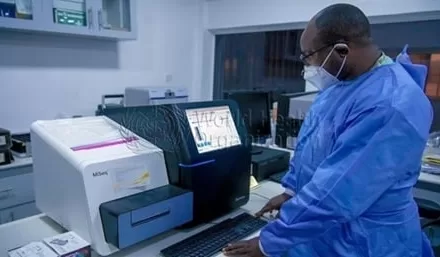Researchers from Queen Mary University of London and University of Queensland Uncover New Insights
In a groundbreaking study published in Cell Genomics, scientists have unveiled a significant correlation between ribosomal DNA (rDNA) copy number and the propensity for inflammation and various diseases in individuals. Led by Vardhman Rakyan and Francisco Rodriguez-Algarra from Queen Mary University of London’s Blizard Institute, in collaboration with David Evans from the University of Queensland’s Institute for Molecular Bioscience, the research marks a pivotal moment in genetic analysis.
The study, which involved analyzing samples from 500,000 individuals in the UK Biobank project, utilized novel whole genome sequencing (WGS) techniques to delve into previously understudied regions of the genome, particularly focusing on repetitive sequences like rDNA.
Ribosomal DNA, typically present in hundreds of copies within the genome, plays a crucial role in the cellular process of protein synthesis. However, until now, it has largely been overlooked in genetic analyses due to its repetitive nature.
“Our research underscores the importance of comprehensive genome analysis in unraveling the complexities of human health,” remarked Professor Vardhman Rakyan, emphasizing the significance of exploring previously uncharted territories within the genome. “Access to vast biobanks enables us to uncover unexpected connections and offers new avenues for leveraging genetic insights into human diseases.”
The study revealed compelling statistical associations between the number of rDNA copies in an individual’s genome and markers of systemic inflammation, such as the neutrophil-to-lymphocyte ratio (NLR), platelet-to-lymphocyte ratio (PLR), and systemic immune-inflammation index (SII). These associations were consistent across individuals of different ethnic backgrounds, suggesting a universal indicator for assessing the risk of future diseases.
Furthermore, the research unveiled a correlation between rDNA copy number and kidney function, particularly among individuals of European ancestry. While similar trends were observed in other ancestral groups, larger sample sizes are warranted to validate these findings.
Professor David Evans highlighted the significance of these discoveries in shedding light on the elusive genetic basis of common complex traits and diseases. “Our work indicates that a portion of this missing heritability may reside in challenging-to-sequence regions of the genome, such as those encompassing ribosomal copy number variation,” explained Professor Evans.
The findings of this study offer promising prospects for preventative diagnostics, innovative therapeutics, and a deeper understanding of the mechanisms underlying various human diseases. By embracing a holistic approach to genetic analysis, researchers aim to pave the way for more targeted interventions and personalized healthcare strategies in the future.
The study, titled “Ribosomal DNA Copy Number Variation Associates with Hematological Profiles and Renal Function in the UK Biobank,” marks a significant milestone in genetic research and underscores the transformative potential of exploring the entirety of the human genome.
Source: Rakyan, V., Rodriguez-Algarra, F., & Evans, D. (2024). Ribosomal DNA Copy Number Variation Associates with Hematological Profiles and Renal Function in the UK Biobank. Cell Genomics.











